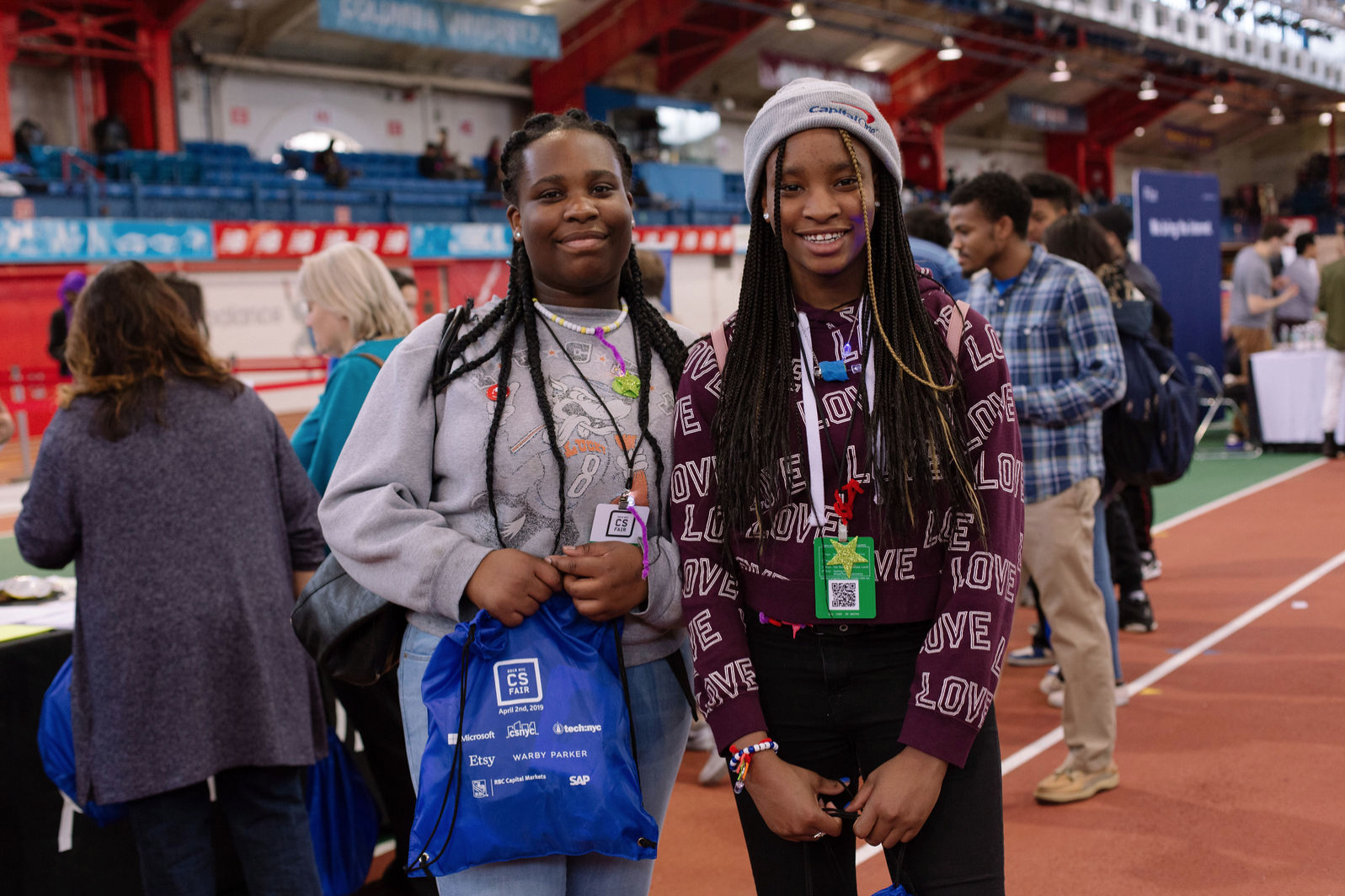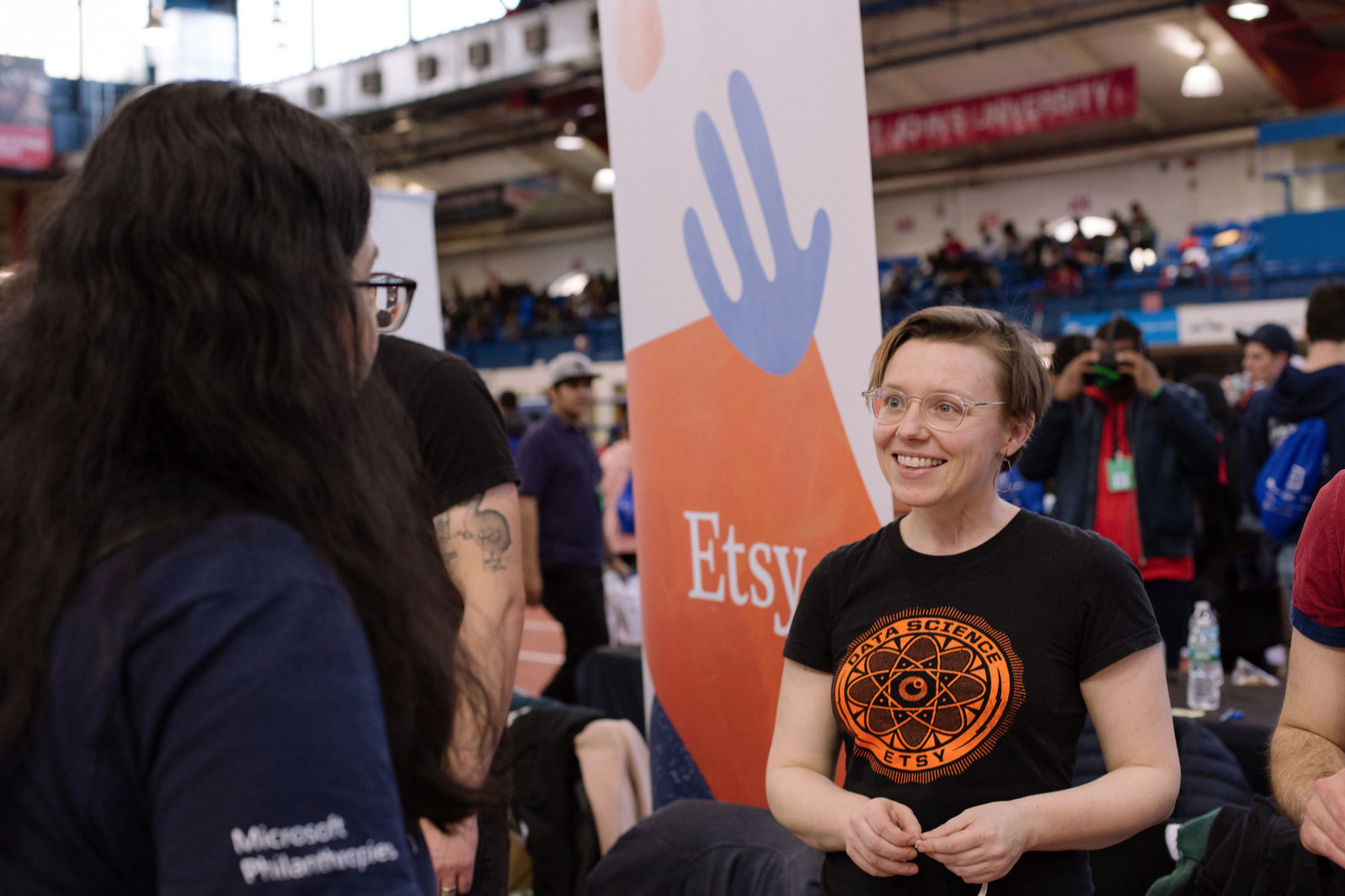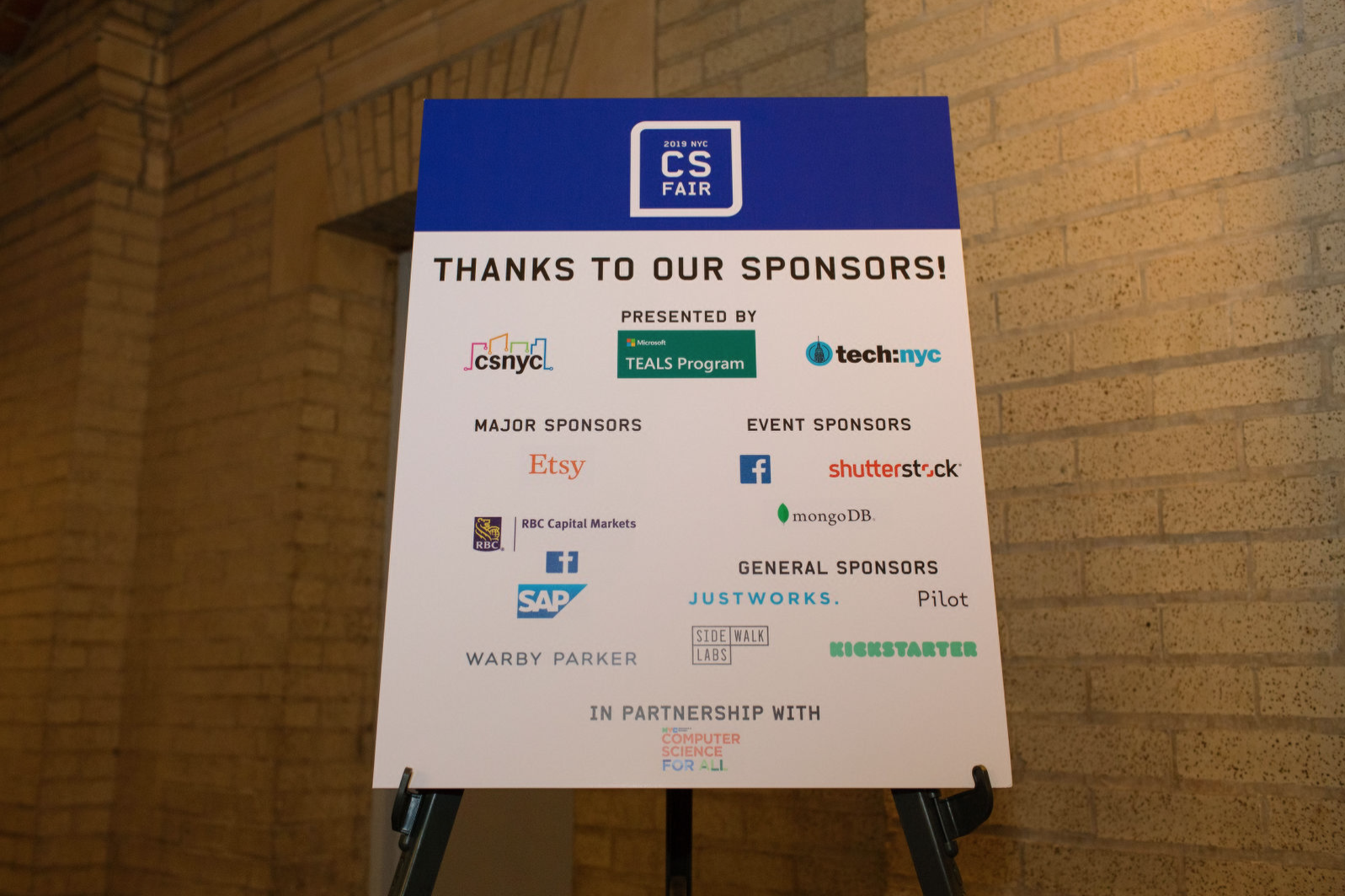Funding Friday: Math In America
Did you know this?

Well, this film that is being funded on Kickstarter is all about the math crisis in America. I backed it this morning and you can too.
Did you know this?

Well, this film that is being funded on Kickstarter is all about the math crisis in America. I backed it this morning and you can too.
Code Society is like Schoolhouse Rock for Computer Science. They use hip hop music and videos to teach computer science concepts to diverse communities.
They are doing a $40k project on Kickstarter (and are about
Here in NYC, we are about halfway into a 10-year effort to get computer science classes into every public school building in NYC. We are already seeing
Most of the students taking CS classes at school live in neighborhoods in NYC where there are no tech companies and they can’t see the pathway that they are on if they want to be. That is where the Annual Computer Science Fair comes in.
This year was the sixth annual CS Fair. We invite high school students who are taking CS classes to take the morning off from school and come to the Armory in Washington Heights and meet tech companies that they could one day work for and colleges/universities that they could attend.
I spent much of yesterday at the Fair and had the honor of taking Mayor de Blasio, who has been funding CS4All since the early days of his administration, through the event. Here are some photos from what is always a fantastic day for me.




The Annual CS Fair would not be possible without the financial support of tech companies who underwrite the expenses. I would like to thank the major sponsors for making this possible.

We’ve been trying a big ambitious experiment in NYC over the last five years. We are training over 5,000 teachers to teach computer science classes in elementary school, middle school, and high school. We call it CS4All.
It sounds simple, but it is anything but simple. And it is expensive. We are funding it via public private partnership. I am leading the private part via a $40mm capital campaign. Talk to me about that if you are interested.
But here’s the thing. If you want to see engineering teams that are 50/50 male/female, and representative of our racial makeup (black, hispanic, etc, etc), if you want true equity and diversity in our workforces, then you simply have to do one thing:
Give the education/training/skills to EVERYONE.
And we are seeing the outcomes now that we are approaching our fifth year of this effort.
The NY Post (The NYC Mayor’s biggest critic) wrote this article about the performance and representation of young women in the AP Computer Science exams last spring.
Just 379 girls took the exam in 2016, compared with 2,155 last year, according to the department. That means that 42 percent of all city kids who took the AP exam were girls — compared with just 28 percent nationwide.
https://nypost.com/2019/03/24/girls-are-acing-the-ap-computer-science-test-in-record-numbers-doe/
And the female students aren’t just sitting for the tests in far higher numbers — they’re conquering them at an accelerated rate as well.
In 2016, only 177 New York City girls passed an AP computer-science exam, officials said. In 2018, 1,266 earned the distinction.
I am a huge fan of efforts directed at teaching young women to code, things like Girls Who Code. They are amazing resources for young women and they are part of why these numbers are moving in the right direction.
But I have always believed, and these numbers give me even more conviction, that the best way to get equity for everyone is to include everyone. Pretty simple really.
First of all, I’d like to say that I have a number of connections to this project that I am highlighting today. The young women who are behind this project are the same ones I mentioned at the tail end of the talk I posted last saturday. I have been inspired by these young women and their teacher since I met them at the Annual CS Fair a few years ago. And in this project, they are “modeling our curriculum and teaching practices on NYC’s Computer Science initiative (CS4ALL)”, which is a project that I helped start and am leading the fundraising effort for. So this project is very close to home and heart for me.
OK, on to the project. This summer six young women will travel to Mendoza Argentina to teach coding curriculum to teachers and students in an effort to get computer science classes into the schools in Mendoza.
Here is a video that explains the project:
This morning I helped launch their GoFundMe campaign with a $5000 donation. Their goal is to raise $15,600 to fund their summer trip to Mendoza. Hopefully some members of the AVC community will join me in backing this project on GoFundMe and help them make this trip a reality.
Last fall, the folks at Yext offered to let me have some stage time at their Onward Conference to talk about the K12 CS Education work that I’ve been doing for the last ten years.
I didn’t realize that the talk was online until I saw it today.
So here it is. It’s just under ten minutes.
A friend sent me this Kickstarter project earlier this week. I took a look and thought “wow, that’s so great. a digital piggybank for kids with its own cryptocurrency, a mobile app, and educational games teaching them to earn and save.” I backed it this morning and though I don’t normally take the rewards on Kickstarter, I did this time. I can’t wait to give this to a kid when I get it this summer.
I saw this project this morning and backed it instantly. It checks a lot of boxes for me.
As many of you know, I have been spending a fair bit of my time on K12 Computer Science Education over the last decade. The good news is that over that time period, there has been massive progress in getting computer science into our K12 schools in the US.
And if I had to pick one single thing that has been the biggest catalyst for that, I’d point to Scratch, the brainchild of Mitchel Resnick and his Lifelong Kindergarten lab at MIT’s Media Lab.
Yesterday was a big day for Scratch, and therefore, for K12 CS Education around the world. The Scratch team launched Scratch 3, a major release which brings a number of important new features and functions to Scratch. Here is the Scratch Team’s blog post on Scratch 3.
The three big improvements to Scratch in this new release are:
1/ Scratch everywhere. It used to be that you could only run Scratch in a browser. Now you can run it on touch devices like tablets. This is a big deal as many early elementary school classrooms tend to use tablets not computers.
2/ Extensions. The Scratch team has made Scratch extensible via a new element called Extensions. Examples of Extensions are the Lego Mindstorms Extension, or the Google Translate Extension, or the Amazon Text to Speech Extension. I am excited to see all of the amazing Extensions that will get built using this new feature.
3/ New characters, sounds, and backgrounds. Most kids use Scratch to build games, animations, and other fun experiences. Scratch is fun!!! So Scratch 3 brings a massive expansion of creative elements that kids can use to create the things they want to make.
Obviously Scratch can’t and won’t be used to make things like operating systems, machine learning models, transaction processing systems, etc, etc. But the people who will be building those things in the next ten years will have likely gotten into programming via Scratch.
Scratch is the on-ramp to computational thinking, coding, programming, and whatever word you want to describe the essence of computer science education. It makes something that seems so daunting really fun and approachable. And that is why I think it is the single biggest catalyst for K12 Computer Science Education.
And it just got a lot more fun and a lot more powerful.
Our portfolio company Quizlet is one of the top mobile apps out there with over 50 million people a month using it to learn something.
Quizlet has existed for over a decade as a
This week Quizlet announced that premium content creators are now joining the Quizlet community to share, and sell,
If you want to become a Quizlet Verified Creator and publish your premium learning content as a Quizlet Study Set, you can go here and do that.
None of this changes the basic Quizlet experience that 50 million people experience every month. As Quizlet wrote in the blog post announcing Premium Content:
You can continue to create study sets and study user generated content to practice and master what you’re learning for free — just like you always have. Quizlet Premium Content doesn’t replace the parts of Quizlet you know and love; it’s adding to it, giving you new ways to use the games and activities on Quizlet to study content you don’t have to create yourself (or rely on other users to create!).
I am excited to see Quizlet add premium content to its massive library of learning material. It allows learners to find new content that may meet their learning needs better than the content they or others have created. It allows teachers and other professional learning content creators to get compensated for their premium content on Quizlet. And, of course, it creates a third revenue stream, in addition to advertising and subscriptions, to diversify Quizlet’s business model.
Quizlet is an amazing learning community. Now professionals can join it and add value while getting compensated for that. I am confident that this new premium content will make Quizlet even better.